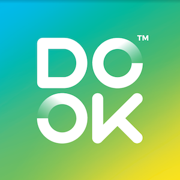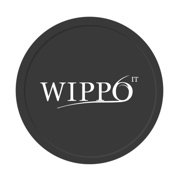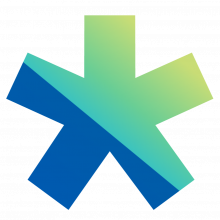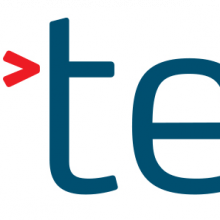
There are 7 Companies in Denmark
that provide Go development Services!
According to the European Commission’s annual ranking, Denmark is one of the most digitized economies and societies among the 28 EU member states (2025). This is a testament to Denmark’s outstanding IT infrastructure and tech-savvy population.
Discover Top IT Companies in Denmark specialized in Go and other related services. Find the best IT service providers for your projects.
Go, also known as Golang, is an open-source programming language created by Google. It is designed for simplicity, efficiency, and concurrency, making it a versatile choice for building a wide range of applications, from web services to system software.
Handpicked companies • No obligation to hire • 100% risk-free
Featured Companies in Denmark
This month, the following Go development companies managed to provide an outstanding service and support. It's worth taking a look.

Copenhagen, Denmark Head office in: United States
Access the Top 1% Tech Talent | 1500+ In-House Developers | Trusted by Fortune 500 Companies

Copenhagen, Denmark Head office in: Poland
Team of Digital Transformation Challengers What drives us is a mission for a sustainable future, possible to achieve with wise application of the soft...
Explore Top Go development Companies in Denmark

Copenhagen, Denmark Head office in: Moldova
Wippo IT develops diverse custom digital solutions for small, medium-sized and enterprise-grade businesses that streamline, automate and optimize bus...
We are specialists in building software and IoT products.

Copenhagen, Denmark Head office in: Lithuania
We are digital advisors that help businesses adopt digitization paths, crystalize business objectives, and ensure efficient and timely implementation.
Technology is our passion - we want to help companies thrive and expand, in a world of digital opportunities.
Filter Go development Companies in Denmark by Cities
Find the right tech company near you or from a specific city. Some of the best companies might be located in smaller cities.
Find more Go development companies around the world
TechBehemoths is the world's most advanced and user-friendly platform to match IT Companies with real clients without hustle.
The IT Industry in Denmark: Country Profile & Overview
According to the European Commission’s annual ranking, Denmark is one of the most digitized economies and societies among the 28 EU member states (2025). This is a testament to Denmark’s outstanding IT infrastructure and tech-savvy population.
85% of Danish citizens are online and actively engaged in the use of a variety of online services, making their digital skills highly advanced. In fact, all communications between citizens and public authorities take place digitally.
It is fair to say that Denmark has set some heavy footprints in the global software development arena. A number of the most used programming languages have been developed by Danish researchers, including C++, TurboPascal, and Visual Prolog. Denmark is also home to world-class software development talent - especially within the fields of security and cryptography, algorithms, AI/ML, wireless network solutions, eGovernment solutions, acoustics software, and robotics.
Since Denmark is a small, highly integrated, and homogenous society, consumers often play an active role in developing new technology and are quick to adopt new technologies. Using Denmark as a test market gives international corporations the advantage of being able to quickly adjust and improve a product at low cost before releasing it on the world market.
Why Work With Danish IT Companies
There are more reasons why working with Danish IT companies is worthwhile - Abundant tech professionals, highly qualified workers, the ease of doing business, and access to a rich and innovative market are just a few to mention.
But let’s take a closer look: Denmark is not the country that faces a workforce shortage in the IT industry. More and more professionals are attracted to work in this industry. What attracts them to work - higher wages, public sector digitalization, and government facilities, combined with 6 hours of work/day, and an attractive social system.
According to the Global Innovation Index 2024, Denmark was ranked at the 10th position out of 133 countries, and the 7th among the 39 economies in Europe. That’s because of lower bureaucracy, digitalization, and a healthy business environment overall.
Highly qualified workers come from tech universities that look more attractive to youngsters than other specialities. And at last, all these lead to an innovative market to which the lucky ones have access.
What to Pay Attention to When Working With Danish IT Companies
With all the facilities and benefits that Danish companies come with, there must be a price. Sure - it’s the money clients pay for the comfort of doing business. Business owners usually pay 15-20% more for digital projects on average when working with Danish IT companies, compared to the EU average. And that’s probably the only thing that could retain from working with a Danish IT company.
How Reliable Are Danish Companies
Reliability and reputation for Danish IT companies and software agencies are very important. But everything comes from the system’s conditions: The less the government pressure, the better the services and the business. A very simple deduction that reveals a part of the truth - Danish companies are reliable because of the policies.
Another part of the story is about tradition. While building its own public sector as a digital sector where there is no need to interact physically with authorities, the Danish digital agencies took over the best practices from countries in the neighborhood. Germany and Sweden have two quite different business models, and the best of both can be found in Denmark. Now, coming back to traditions, Denmark managed to build its own business culture that is distinctive and pleasant at the same time.
What is Go and what are its benefits for your projects?
Go, also known as Golang, is an open-source programming language created by Google. It is designed for simplicity, efficiency, and concurrency, making it a versatile choice for building a wide range of applications, from web services to system software.
More than 363 verified IT companies leverage Go in their development projects. These companies range from startups to tech giants like Google, Uber, and Dropbox. They appreciate Go's speed, reliability, and ease of use for building scalable and performant software.
Go service providers rely on various tools and technologies to enhance their development process. Some commonly used tools include the Go compiler, which transforms Go code into executable binaries, and the Go standard library, which offers essential packages for building applications. In terms of deployment, containerization technologies like Docker are frequently used to package Go applications for consistency and portability.
You may be wondering, how is Go Different from C, Rust, and Java. So, below we’ll try to show you more about the differences that exist between them:
-
Go vs. C: While both Go and C are low-level languages, Go offers modern features like garbage collection and memory safety, which simplify programming. Go is also more concise and expressive than C, making it easier to read and maintain. But if you think your business needs companies that also specialize in C, you can find them on this page
-
Go vs. Rust: Rust emphasizes memory safety and control without sacrificing performance. While Go offers simplicity and readability, Rust provides fine-grained control over memory and is suitable for systems programming with a focus on safety.
-
Go vs. Java: Java is a high-level language often used for building enterprise-level applications. It relies on a virtual machine (JVM) and is known for platform independence. Go, on the other hand, compiles native code, offering better performance and efficiency for certain use cases.
Languages related to Go in terms of use cases and features include Python, Ruby, and Node.js. These languages, like Go, are suitable for building web services and backend applications and are known for their developer-friendly features. If you need these programming languages in addition or instead of Go, just click on their corresponding words above to find verified vendors providing those services.
When selecting IT companies that use Go for your project, consider factors such as the company's experience with Go, their portfolio of past projects, client references, and their understanding of your specific project requirements. Look for companies that align with your project's complexity, scalability needs, and budget.
Go service providers are essential for various project types, including:
-
Web Services: Go is well-suited for building RESTful APIs and microservices due to its excellent performance and simplicity.
-
Networking Applications: Go's concurrency support makes it ideal for developing network-related software such as servers and proxies.
-
Cloud Applications: Go's efficiency and speed are valuable for building cloud-native applications and serverless functions.
-
System Software: Go can be used for developing system utilities, command-line tools, and operating system components.
Go is a versatile language, and its speed, simplicity, and efficient concurrency model make it suitable for a wide range of projects, making it an excellent choice for modern software development.


